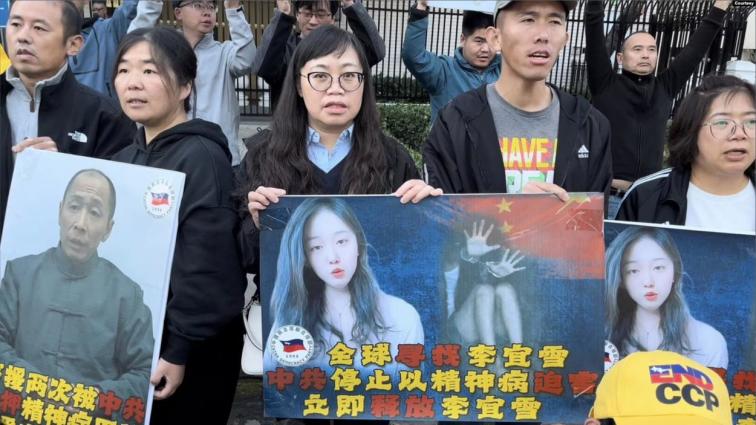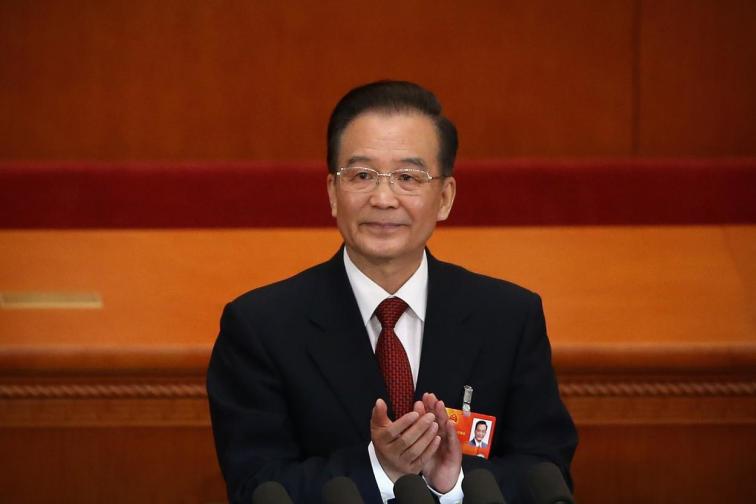Leaders in the tech industry have warned that reducing the risk of human extinction caused by artificial intelligence should be a global priority on par with other large-scale societal risks.
People News - In 2024, several episodes of Internet Gambling ranked in the top 5 of Radio Free Asia’s popular articles list, showing the high level of attention netizens and listeners paid to the content covered in these episodes, which introduced internet content banned by the Chinese Communist Party.
On February 14, 2024, the topic of the Internet Gambling episode was what was said on the Weibo post discussing the China Securities Regulatory Commission that was blocked. This episode ranked in the top 5 of Radio Free Asia's popular articles at the time and was reposted on the overseas Chinese platform Wenxue City.
The background of this news event was that the Chinese stock market had entered a downturn at the beginning of the 2024 Chinese New Year, and netizens' negative opinions about the CSRC and new financial regulatory measures became targets for online censorship. In the February 14, 2024, Internet Gambling episode, senior U.S.-based financial analyst Qin Peng offered an analysis on this.
On April 24, 2024, Internet Gambling reported on the WeChat censorship of the article "Stand Up, Resist the Online Cultural Revolution!" This episode also gained attention from netizens and was reposted on overseas websites such as Wenxue City, Liuyuan Net, Jiaxi Net, and social media and podcast platforms like Telegraph Times.
In this episode, we mentioned that the background of the WeChat censorship of "Stand Up, Resist the Online Cultural Revolution!" was related to the dismissal of Li Jiaqian, the principal of a middle school in Tangyin, Anyang, Henan, along with two local education workers. Li Jiaqian was dismissed due to his novel being criticized by online public opinion for "glorifying the invading Japanese army and insulting the Eighth Route Army." This public outcry caused fear for the article's author, Gu Yuan, prompting him to call for an end to this "online Cultural Revolution." In this episode, U.S.-based senior current affairs commentator and founder of the YouTube channel World Citizen - Enlightenment Hall, Qian Haocheng, offered commentary on the censorship of the article.
June 4, 2024, marked the 35th anniversary of the 1989 Tiananmen student democracy movement. This movement began after the death of former Chinese leader Hu Yaobang in April 1989, when public mourning evolved into a nationwide mass protest demanding anti-corruption measures and press freedom. The Chinese government’s suppression of this protest on June 4, 1989, is referred to as the "June Fourth Incident." The group of family members of those who were injured or killed during the crackdown are called the "Tiananmen Mothers." On Chinese internet and social media, any information related to this movement and the June Fourth Incident is highly sensitive and is often deleted or blocked.
On June 5, 2024, our Internet Gambling program aired an episode titled "A Poem Written by the White Paper Generation for the 35th Anniversary of June Fourth," which featured a video of a poem dedicated to the Tiananmen Mothers, written by Shanghai White Paper Movement participant Xia Chaochuan, now living overseas. This episode was also reposted on overseas websites such as Huaxia Digest and Wenxue City. In this episode, we aired an interview with Xia Chaochuan.
In a comment on the Internet Gambling post on the banned U.S. social media platform X, netizen @KeyFactoryNYC expressed that the poetry of the White Paper Generation gives new meaning to June Fourth, praising their courage and creativity and urging support for the younger generation's voice.
On August 2024, an incident involving the illegal trade of human organs by a company in Shanxi, which was exposed by a Beijing lawyer on Weibo, became a national controversy and a sensitive topic for online censorship. On September 11, 2024, Internet Gambling aired an episode discussing the article "What is Homologous Bone? The Caixin Article That Was Blocked" which also gained traction from netizens and was reposted on platforms like Wenxue City and Jibing News.
This episode, based on information from the overseas China Digital Times website, introduced articles from Jiemian News and Caixin that were blocked and analyzed what the censorship meant. The episode included an interview with He Anquan, a former surgeon now practicing acupuncture in New York.
Starting from the end of August 2024, the news that the government of Bishan District in Chongqing had established a "Smash Pots and Sell Iron" task force sparked widespread controversy on Chinese social media, with related Weibo and WeChat posts being deleted and blocked. The Internet Gambling program aired on September 18, 2024, introduced the WeChat banned article titled "Smash Pots and Sell Iron! What's Going on in These Areas?" This episode also attracted significant attention from netizens and was reposted on websites such as Wenxue City, Forbidden News Network, and Quick Media. In this episode, independent economic researcher and Radio Free Asia special commentator Qin Weiping, now based in the United States, stated in an interview that the formation of the "Smash Pots and Sell Iron" task force by Bishan District’s government indicates a severe local government debt crisis in China.
On the U.S. YouTube platform, which is banned in China, a netizen @philchinamusical commented, explaining that "Smash Pots and Sell Iron" originates from rural China. During the Great Leap Forward, many village officials led militia groups to farmers’ homes and smashed their pots to force them to join the communes and eat in collective dining halls. Therefore, "Smash Pots and Sell Iron" is actually a way to demonstrate loyalty to the higher-ups, not a declaration of laziness or passivity. Grassroots units, even with a million times more courage, would never dare to challenge the higher-ups, only to show loyalty. However, the current propaganda officials and many of the leaders in power are so culturally illiterate that they end up making such "misstatements."
On October 3, 2024, Internet Gambling aired an interview with Kevin Shih, the director of Freedom House’s 异言网 (Other Voices Network) project, which studied protests in China. The research showed that the top ten cities with the most protests due to economic reasons from 2022 to 2024 were Shenzhen, Xi'an, Sanya, Dongguan, Zhengzhou, Zhuhai, Qingdao, Zhongshan, Guangzhou, and Huizhou. The most protests occurred in Shenzhen, with over 300 incidents.
A comment on YouTube by netizen 89-Little-pink-pig-64 emphasized that the Communist regime’s stranglehold on the economy makes recovery impossible, urging for the spread of freedom and democracy in China.
Today’s episode reviews the content from Internet Gambling in 2024 that gained attention from netizens. These topics highlight the key areas of censorship under the Chinese Communist Party’s online control.
Chinese internet and social media platforms typically justify censorship, deletion, and account bans by citing violations of internet management regulations.
(Source: Radio Free Asia)









News magazine bootstrap themes!
I like this themes, fast loading and look profesional
Thank you Carlos!
You're welcome!
Please support me with give positive rating!
Yes Sure!